Home Insurance in Canada: Essential Things You Need to Know
Home Insurance in Canada: As a homeowner in Canada, one of the most important investments you can make is purchasing a home insurance policy. It protects your property and personal belongings from unexpected events that could cause financial losses.
However, navigating the world of home insurance policies can be overwhelming, especially if you’re a first-time homeowner.
Read on to understand the essentials of home insurance in Canada to choose the right policy for your needs.
Types of Home Insurance Coverage in Canada
1. Comprehensive Coverage
The comprehensive coverage of home insurance in Canada covers various forms of damage to the home. This includes fire, theft, vandalism, water damage, and natural calamities such as storms and earthquakes.
Besides, it also provides coverage for personal properties within the home, such as furniture, appliances, and electronics.
2. Broad Coverage
Broad coverage home insurance covers the structure of your home, including any additions or attached structures like garages. It also protects your belongings and personal property inside and outside your house.
If your belongings are stolen from your car or you suffer losses due to vandalism, you will be reimbursed for those expenses.
3. Additional Coverage Options
Flooding has become increasingly common in many parts of Canada due to climate change, and this type of damage is not typically covered under standard homeowners insurance policies.
Flood insurance is a viable means of safeguarding one’s residence against water-related harm from intense precipitation or thawing snow, or storm surges that can lead to flooding.

Factors Affecting Home Insurance Premiums in Canada
1. Location
One of the essential factors affecting home insurance premiums is the location of a home. Residences in regions characterized by elevated crime rates or susceptibility to natural calamities can attract higher premiums due to the increased risk of damage or theft.
2. Building Age and Construction
The age and construction of a building also play a significant role in determining the premiums charged. Newer homes constructed with modern construction materials and techniques might attract lower premiums. While older homes with outdated materials may attract higher premiums due to the potential for damage.
3. Home Value
The higher the home’s value, the more expensive it is to insure. It is because, in case of any damage or loss to a higher-priced property, the insurance company will have to cover an enormous sum. Homeowners who own high-value homes are seen as riskier to insure since repairing or replacing high-end homes is often costly.
Additionally, high-value homes may come with exceptional features such as swimming pools, spas, and expensive appliances, all of which increase the cost of replacement and repair if damaged or destroyed.
4. Insurance Claims History
Insurance companies analyze an individual’s claims history before offering them any insurance policy. Insurance claims history refers to the record of previous claims made by the homeowner on their insurance policy.
The frequency and severity of past claims are used as predictors of future claims. If a homeowner has filed multiple lawsuits in the past, they might be considered a high-risk candidate by the insurance company. Similarly, if the previous claims were severe, the homeowner might be offered higher premiums in terms of damage or cost.
Conclusion: Home Insurance in Canada
Home insurance in Canada is crucial for homeowners and tenants. It safeguards your property and possessions from natural disasters, theft, and other unfortunate events. Reviewing your policy regularly and updating it as needed can help ensure that you’re always adequately protected.
Are you looking for home insurance in Sherwood Park? Check out Reliant Insurance! Our team of brokers offers a variety of options to ensure you find the coverage that fits your needs and budget. With our exceptional customer service and experience in the industry, you can trust that you are in good hands. Call us now!
Comments are closed.






